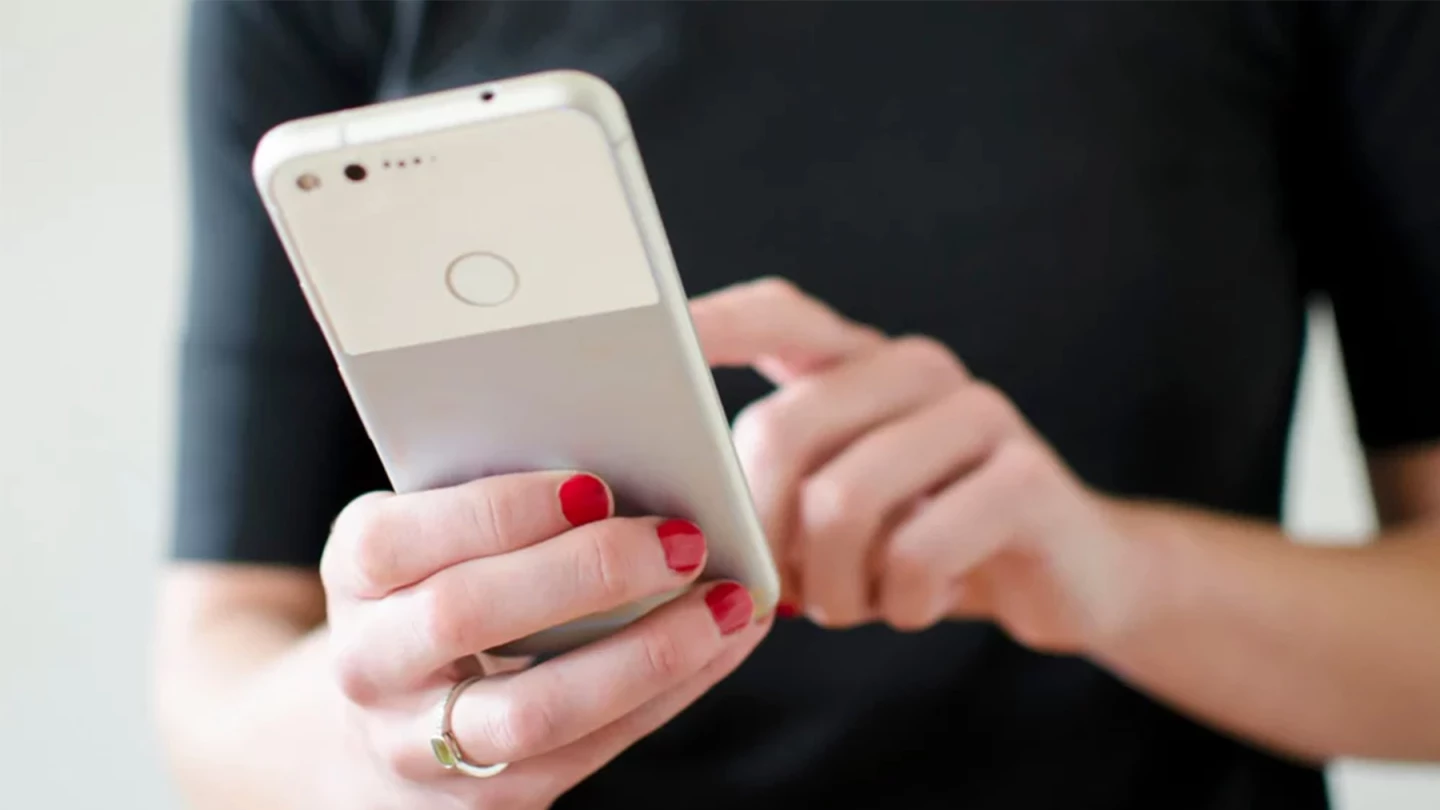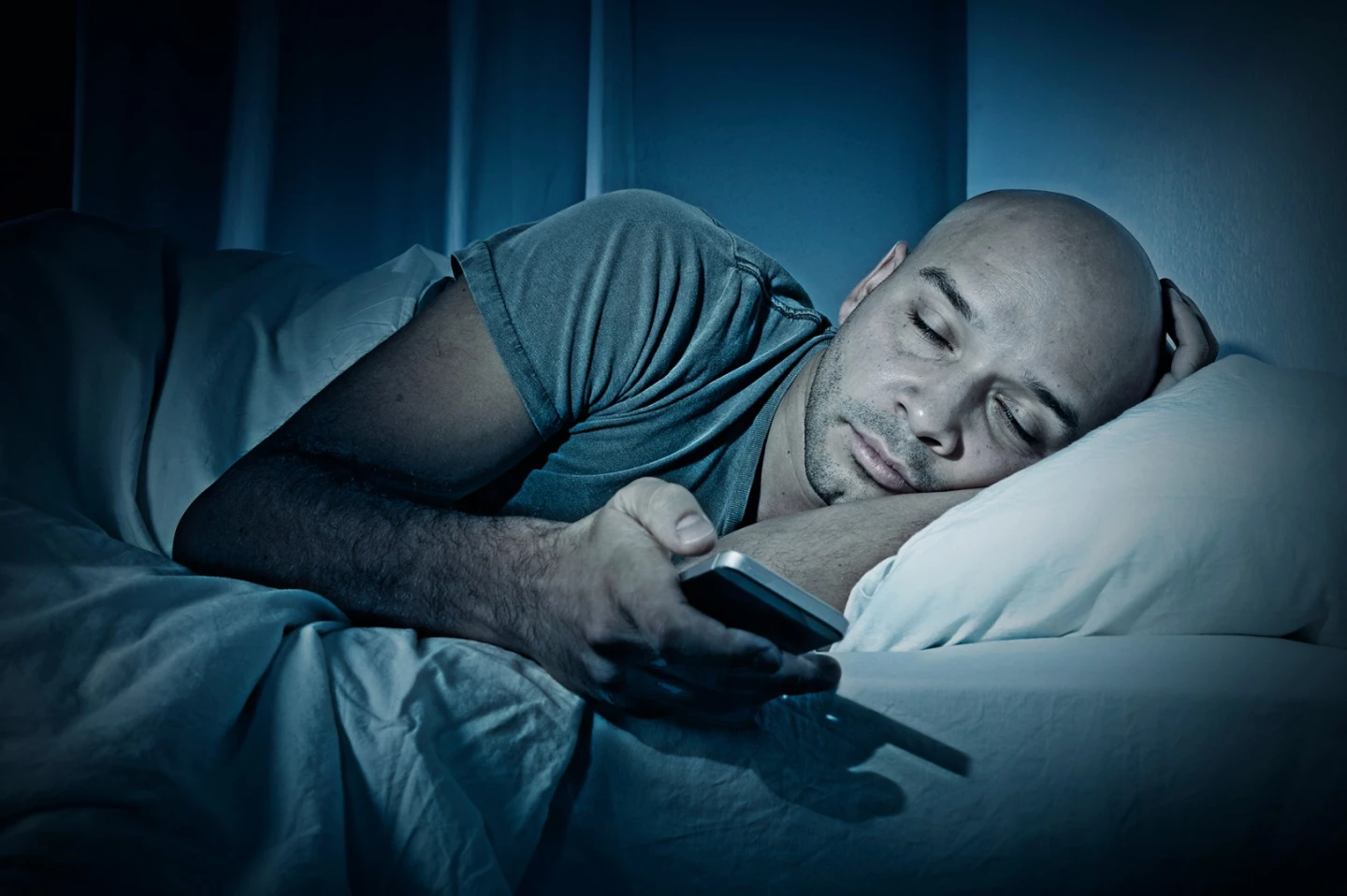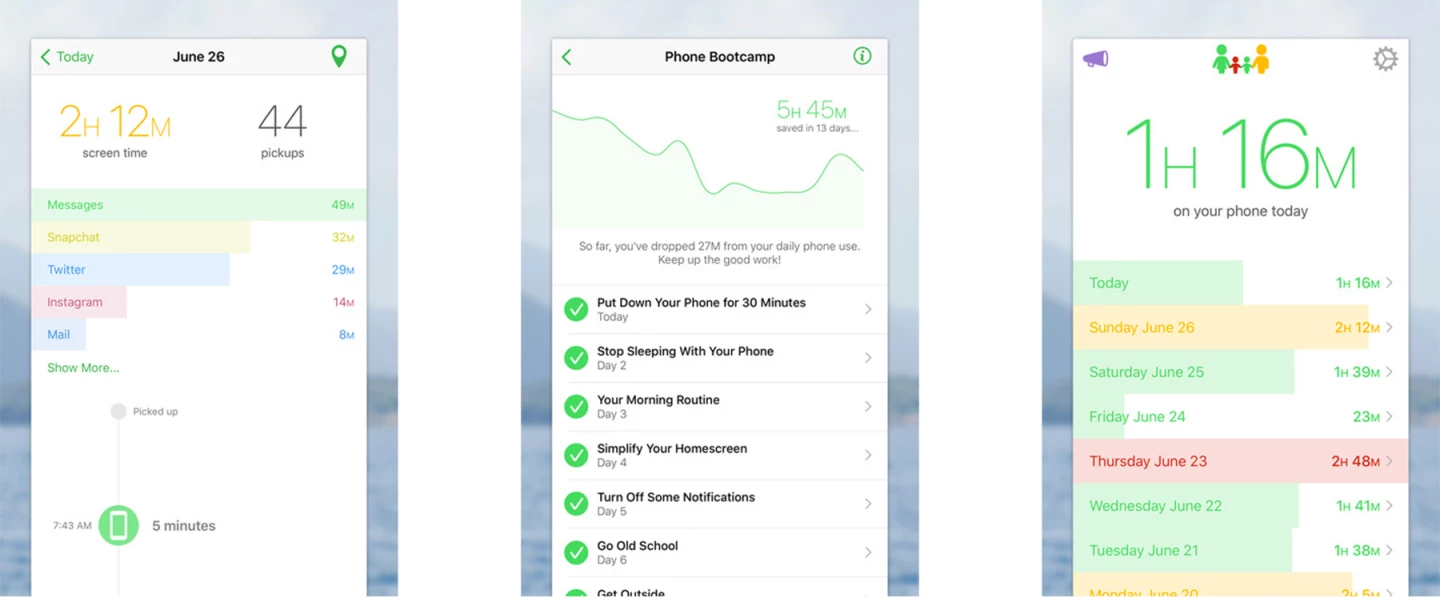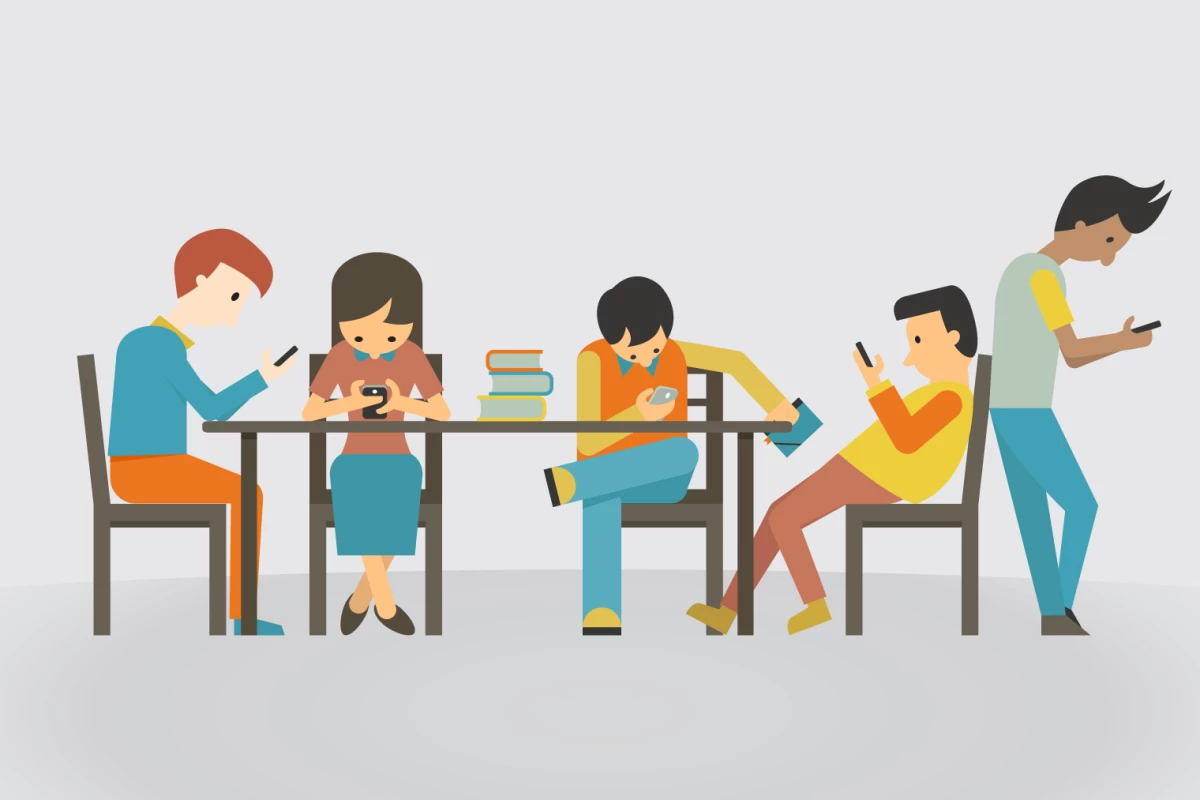Opinions on smartphone use fall on both sides of the fence. Some opine that being glued to our phones is unraveling the very fabric of the social contract, while others say they connect us better than ever. But it's more constructive to put aside snap judgments and examine the mechanics and implications of smartphone use instead. Why can't we put our phones down? How do our technology habits affect our relationships? We need to understand what's going on in order to make well-informed decisions about our own mobile technology use.
Here's what some experts have to say about why smartphones are so habit-forming and the repercussions of being glued to our phones, followed by a look at how to manage those forces in our own lives.
Why we're so connected to our phones
Despite being a trademark of the modern age, smartphones have a way of activating ancient impulses in the human brain. "A mobile device is a portable dopamine pump," says Dr. David Greenfield, Assistant Clinical Professor of Psychiatry at the University of Connecticut School of Medicine, and founder of The Center for Internet and Technology Addiction. "Dopamine is a pleasure neurotransmitter in the mesolimbic reward circuitry of the brain, which is a primitive, old part of the brain."
Smartphones are primarily tools to access the internet, and internet content itself is habit-forming. By design, it presents few barriers to satisfaction. "Internet addiction is not a new thing, but we're now seeing more people become addicted to different forms of content, like social media, or fan fiction, or online shopping, not to mention gambling, gaming and sex," Dr. Greenfield observes. "Amazon is a perfect example. There's very little threshold to cross before you click and buy something. It's almost instantaneously rewarding. When you purchase something you get a hit [of dopamine] and you get a secondary hit once you receive it."

Notifications, Dr. Greenfield says, make smartphones even more addictive than other tools used to access the internet. "Every time you get one of these notifications, there is a classically conditioned response that you're going to get a reward." While there is not always a reward, that unpredictability causes more stimulation. "You're going to be compelled to check it, because you're going to get a hit of dopamine in anticipation before you check it, and if it's important, interesting or relevant, you'll get a secondary hit. It's essentially an IV that you carry in your pocket that is elevating particular neurotransmitters in your brain."
This hardwired activity occurs in a subconscious manner: "The state of anticipatory reward is powerful enough to override the frontal lobes of the brain that are rational," notes Dr. Greenfield. These neurological mechanisms shed some light on why we are driven to our phones in spite of ourselves, or otherwise have a lack of awareness about how frequently we check and use them.
"Phubbing" or phone snubbing, hurts relationships
While our personal habits may not rise to the level of a full-blown addiction, many experts, including Dr. Greenfield, believe that a large number of us are overusing or abusing our smartphones.

Research by Dr. James Roberts, a marketing professor at Baylor University who has long explored the negative repercussions of consumer behavior, confirms that smartphone absorption engenders personal conflict in romantic relationships – one of the most important relationships in our lives. "Phubbing – that is, phone snubbing, phone distractions that occur in the presence of other people, undermines relationship satisfaction," Dr. Roberts told us.
"The more one romantic partner perceives that they are being phubbed, the more it hurts their feelings, which ultimately fed into reporting higher levels of stress, anxiety and depression." These negative repercussions aren't limited to romantic relationships. "Conflict related to a phone could be with friends, family or love interests," Dr. Roberts adds. "As a college professor, I can't tell you how much conflict smartphone use causes in the classroom."
Our smartphone habits alter our expectations of one another
But while smartphones obviously alter the logistics of our daily lives (we expect one another to be more or less immediately available), and phone-based distractions can cause conflict, smartphone use also has deeper cultural effects that are being explored by sociologists.
MIT professor Sherry Turkle is one researcher taking a closer look. In a TED Talk observing the phenomenon of devices standing in for human companionship, she argues that with the prevalence of screens "we expect more from technology and less from each other."
According to Turkle, smartphone absorption prevents us from truly connecting with the people around us, and not just due to distraction: It also prevents us from adapting to solitude. She explains, "Solitude is where you find yourself so that you can reach out to other people and form real attachments. When we don't have the capacity for solitude, we turn to other people in order to feel less anxious or in order to feel alive. When this happens, we're not able to appreciate who they are."

Turkle reasons that smartphones aren't just distracting us by holding our attention. They also act as social security blankets. "[F]rom social networks to sociable robots, we're designing technologies that will give us the illusion of companionship without the demands of friendship. We turn to technology to help us feel connected in ways that we can comfortably control."
Human attention is becoming harder to come by and increasingly valuable
We are absorbed in our phones because we are hard-wired to do so, and because they help us avoid uncomfortable situations. In doing so, we give less of our face-to-face attention to others and expose ourselves to fleeting packets of diversion. We're indulging in shortened attention spans, and we have less of our own attention to give to others.
Smartphones – and the internet era as a whole – have also led to less face-to-face communication because many human roles have been automated or taken an online route. We don't need bank tellers with direct deposit and banking apps. With online dating, we don't need to meet people in person before deciding they're not right for us. Virtual assistants and bots converse with us so that real people don't have to.
In 2014, Microsoft CEO Satya Nadella penned a strategy memo in which he observed: "We are moving from a world where computer power was scarce to a place where it now is almost limitless, and where the true scarce commodity is increasingly human attention".
This quote was later used at the start of a Canadian consumer insights report that Microsoft released in 2015, which also made the attention-getting claim that the average human attention span had dropped to a mere 8 seconds, "less than a goldfish". In this context, Nadella's comment seemed to be an admonition to marketers on the importance of brevity and immersion in the digital age.
However, Nadella's point about human attention being a commodity also emphasizes that face-to-face communication itself is valuable, and is poised to become more so. It reflects a belief that some types of personal attention can never be replaced with the automated or virtual.
How we can manage? Self-reflection, discipline and human connections
It's easy to see how the above phenomena can complicate our relationships. If smartphone use has deleterious effects, it's not rocket science to deduce that the less time spent on screens, the better. However, there are a few recommended strategies for limiting smartphone use (and screen time in general).
Dr. Roberts stresses the importance of a proactive – even aggressive – approach, especially for parents and those in a position of authority. "If you don't have a clear policy, and you aren't adamant about restriction of smartphones, or you're not clear about acceptable use, you'll lose the battle. If you allow the privilege, it will be abused. We know that when it comes to phones, we can't control our behavior."
Some tips include reducing the number of notifications received, as well as deleting time-wasting apps from your phone. Habit-breaking apps like Moment (free for iOS with in-app purchases) and Addicted (in the Google Play Store) are specifically designed to keep track of your screen time, promote self-awareness and curb unhealthy use. You can also set other types of limitations, such as designating screen-free places in the home or times of day, or choosing to use an actual alarm clock instead of keeping your phone by the bed.

For a less technology-centered option, developing a meditation practice is one way to develop the strength in solitude described by Turkle. There are apps for that as well. For example, Headspace offers guided sessions designed for a 10-minute daily practice for heightening your own mindfulness. It requires a paid subscription, but Insight Timer (free on iOS and Android) also has an extensive searchable library for guided meditations to suit a variety of goals.
In the words of Dr. Greenfield, breaking dependency on our smartphones is "very much like treating any addiction except that unlike gambling or heroin or cocaine, you can't live without the internet. We have to reach a sustainable, long-term pattern of use. The smartphone is not going anywhere. We'd be naive to think we're going to eradicate its use."
In other words, we can't expect to turn away from technology altogether, but we should remain aware of its influence on us, along with the fact that we can redefine our relationship with it at anytime.








